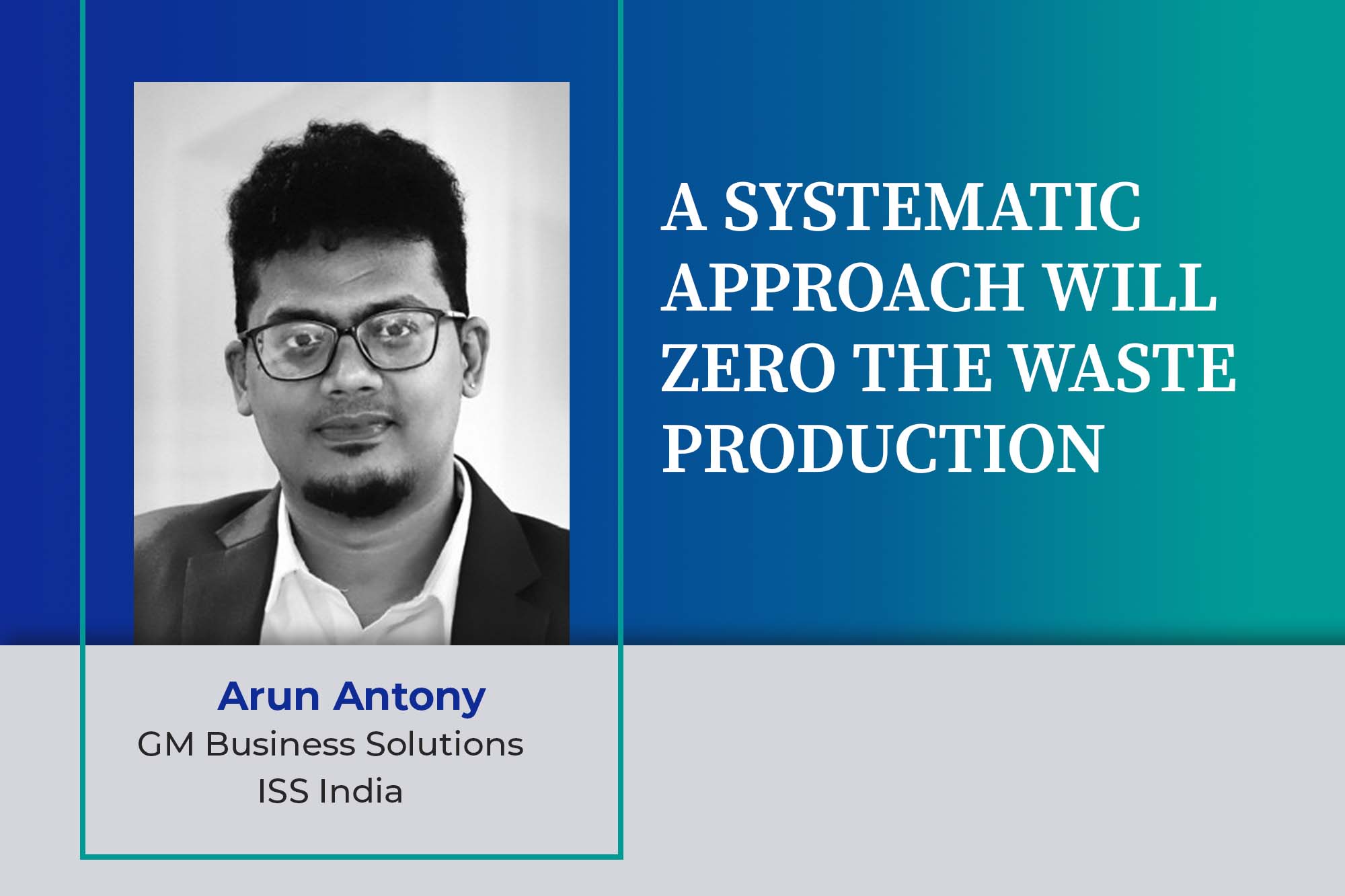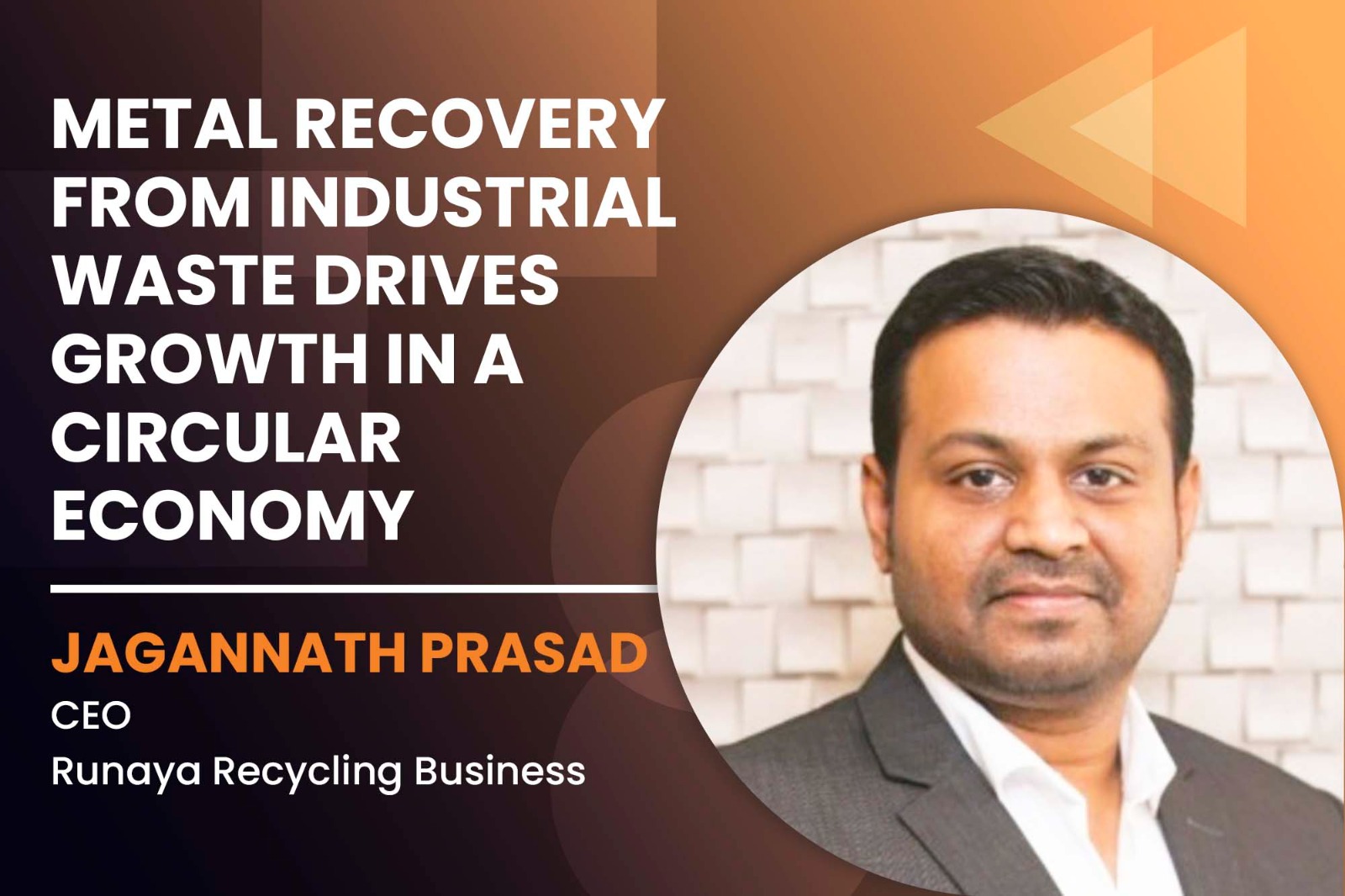A systematic approach will zero the waste production
By Staff Report October 3, 2024 5:25 pm IST
Zero-waste facility management requires a systematic approach, starting with waste audits and measurable goals. Arun Antony, GM Business Solutions, ISS India, shares how the transition to zero waste is complex but can be accomplished with creativity and persistence.
Sustainability is now a necessity in facility management. As the global demand for sustainable practices increases, facility management is implementing eco-friendly solutions. Central to these efforts is the zero-waste approach, a strategy designed to reduce waste and use resources wisely. Zero-waste is a strange concept. It raises questions on how organisations can overcome the challenges of achieving this ambitious goal. The zero-waste approach in facility management targets eliminating waste generation by recycling, reusing, or composting materials, rethinking resource usage from the start rather than just reducing discarded items.
Zero-Waste strategy benefits and implementation
Zero-waste strategy offers numerous advantages in environmental, resource, and economic aspects. By diverting waste from landfills and incinerators, organisations can reduce greenhouse gas emissions, which translates to a smaller carbon footprint and less harm to ecosystems. Recycling and material reuse lead to resource efficiency and reduce the environmental impact of raw material extraction and processing. It boosts the organisation’s bottom line by lowering disposal and waste handling costs while reducing material purchases. Beyond financial savings, a commitment to sustainability can improve a company’s reputation and business opportunities in sectors such as recycling and resource recovery.
A systematic approach is required, starting with thorough waste audits to identify recyclable or reused materials. From there, organisations should set clear, measurable goals, ensuring both short-term milestones and long-term objectives are established. Engaging stakeholders, including employees, suppliers, and clients, will also speed up waste reduction efforts. Reducing packaging and encouraging reusable items will help promote effective recycling and composting programs. Regular monitoring and adjustments based on performance data are also essential.
Transition to Zero Waste
The transition to zero waste is a complex task that can be accomplished with creativity and persistence. Organisations might face resistance from their employees as they must compromise certain habits. This challenge can be tackled through comprehensive training programs and strong leadership support. The benefits of zero waste, such as cost savings and environmental improvements, should be led by the examples of the seniors in the organisation. Real-life success stories can help motivate the workforce to take up new practices.
The initial costs of adopting zero-waste practices can be daunting. Infrastructure limitations are challenging, especially in regions lacking adequate recycling and composting facilities. Organisations can address waste management issues by partnering with specialised recyclers and onsite solutions and advocating for improved local waste management infrastructure. Many organisations recoup these costs through long-term savings in disposal fees and material procurement, with phased implementation or pilot programs helping to manage expenses. Tracking and reporting waste diversion can be simplified through advanced waste management software and sensors. The real-time data will facilitate continuous improvement in waste management strategies.Monitoring critical metrics like the diversion rate assesses the success of zero-waste programs. The diversion rate measures the proportion of recycled or composted garbage versus landfill or incinerator waste. A higher rate means a successful zero-waste strategy, as financial benefits from reduced material costs and disposal fees can motivate these practices to continue. The environmental impact of sustainability is known for reduced greenhouse gas emissions and resource preservation.
The future of zero-waste
Technology and partnerships allow managers to monitor progress towards zero waste. Advanced systems provide accurate tracking of waste streams. Sensors further assist with collection and sorting processes, reducing contamination and improving recycling rates.
Digital training platforms have simplified employee education on zero-waste practices. Training can be accessible across the organisation, regardless of location. Additionally, forging partnerships with local recyclers and composters can build up waste diversion efforts, resulting in effective recycling programs and the infrastructure needed to support zero-waste initiatives.
The road toward zero waste in facility management has challenges, but strong leadership, innovative solutions, and continuous engagement can lead to success. By embracing zero-waste practices, organisations contribute to environmental preservation and enjoy long-term economic benefits, making it a practical, achievable pathway to a sustainable future.
Cookie Consent
We use cookies to personalize your experience. By continuing to visit this website you agree to our Terms & Conditions, Privacy Policy and Cookie Policy.










